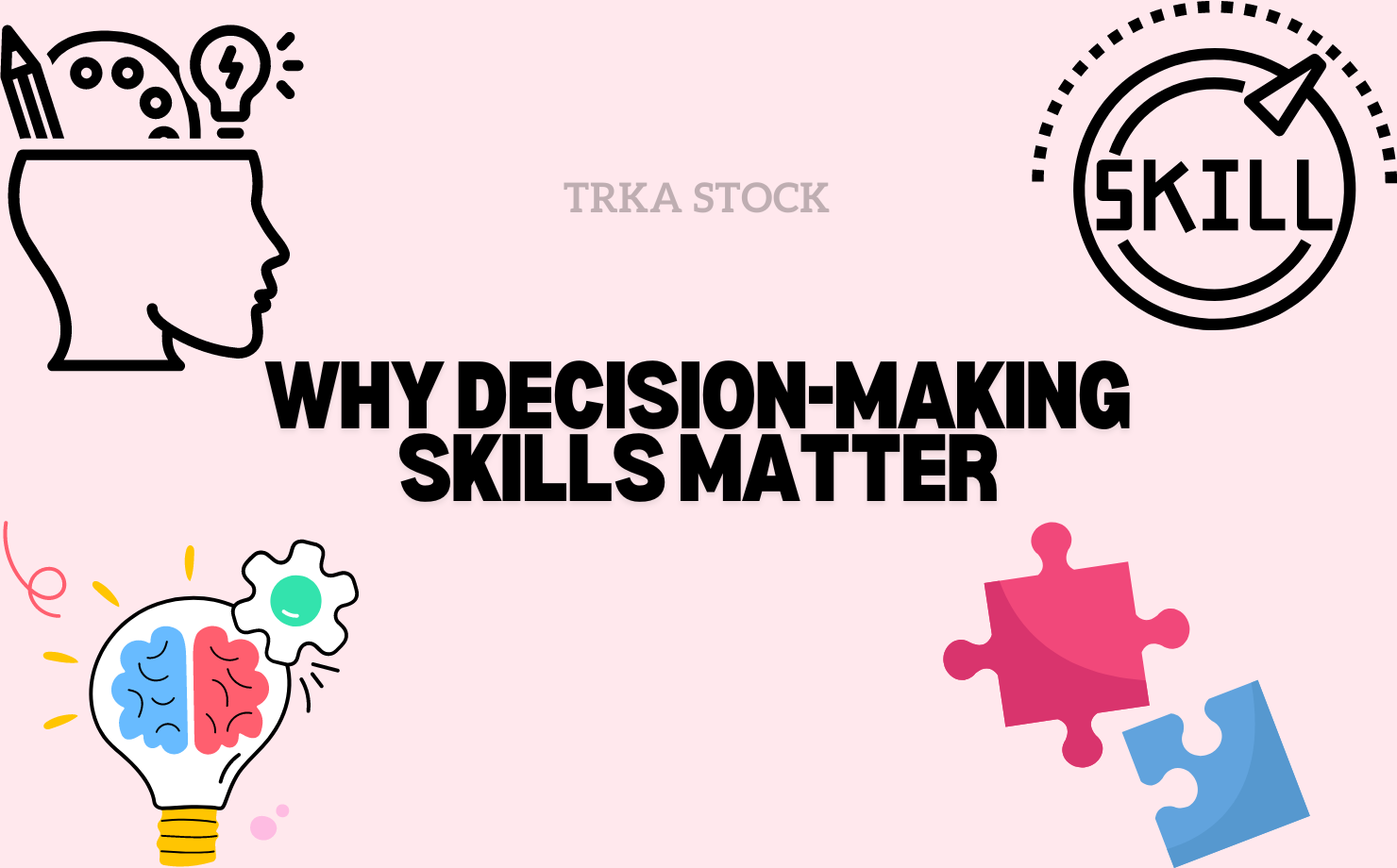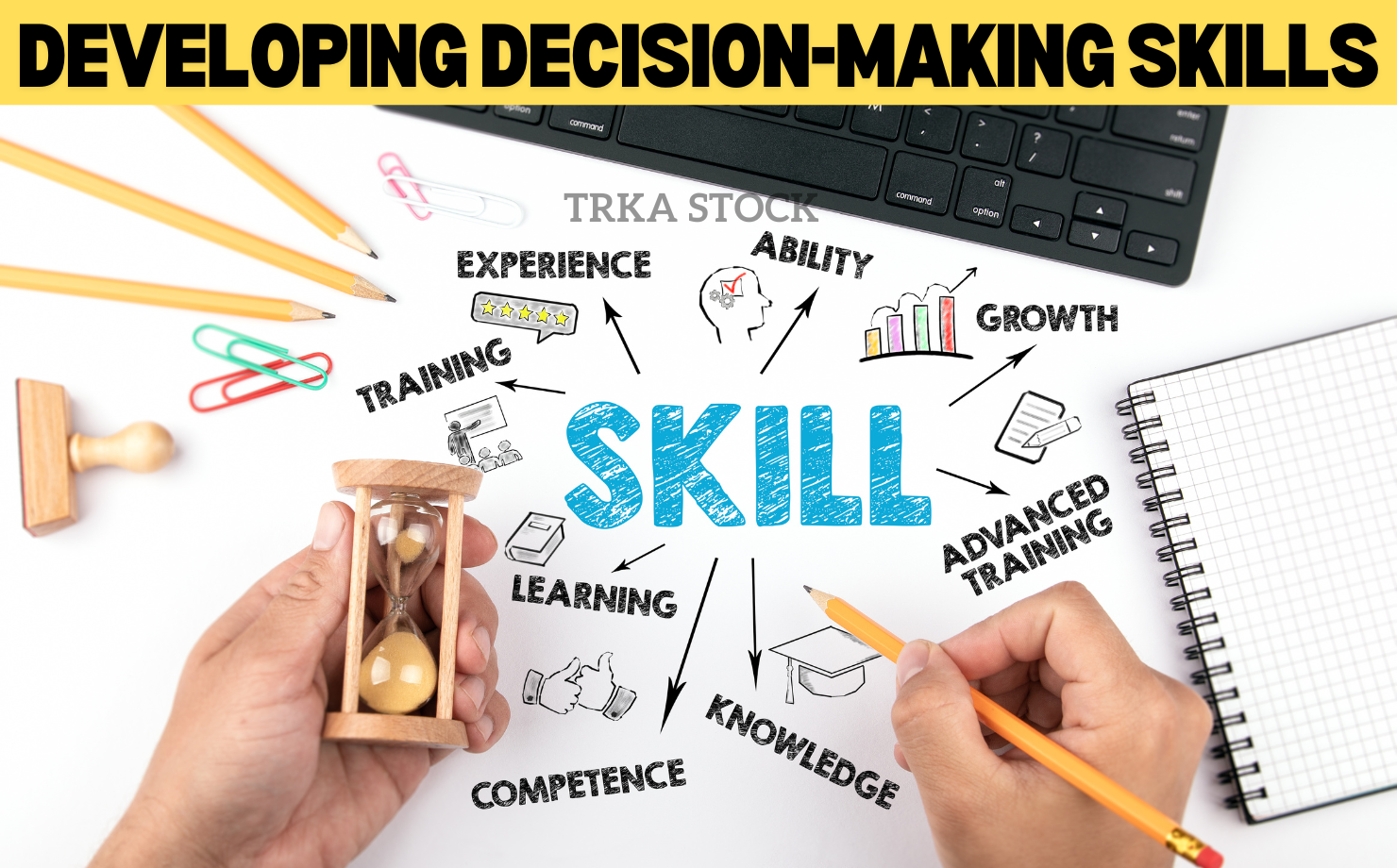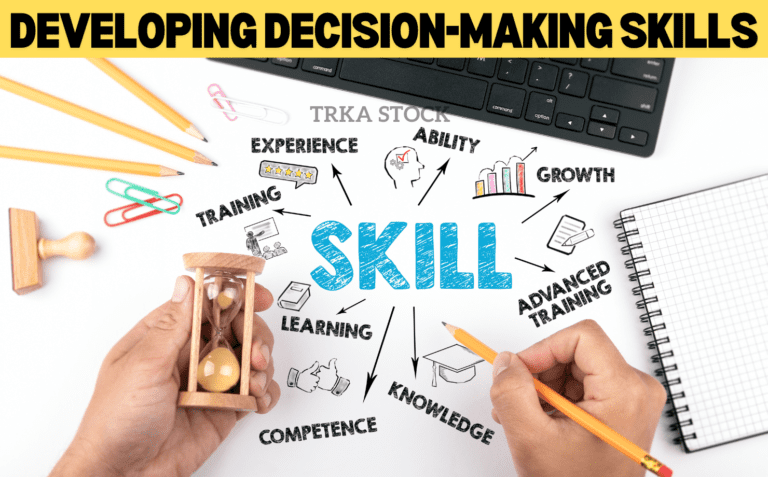Summary – Mastering Decision-Making Skills
Enhance your Decision-Making Skills by mastering critical thinking, information gathering, and analysis. Effective decisions lead to personal and professional success, improving leadership, relationships, and overall well-being. Continuous learning and self-awareness are key to refining these essential skills for a fulfilling life and career.
Shaping Your Destiny: The Importance of Decision-Making Skills
Sound decision-making is built on a solid foundation of critical thinking, information gathering, and analysis. Effective decisions require a clear understanding of the situation, identification of potential options, and evaluation of the possible outcomes of each choice. By developing these abilities, people may make decisions that align with their beliefs and aims and confidently manage challenging situations. For those looking to enhance these abilities, a decision making course can provide the tools and frameworks necessary to improve decision-making processes, leading to more effective and successful outcomes in both personal and professional settings.

Why Decision-Making Skills Matter
Making decisions is a crucial life skill for managing its intricacies. They help assess situations, evaluate options, and select the most beneficial path forward. Research has shown that sound decision-making abilities can significantly enhance leadership qualities in both personal and organizational contexts.
Leaders who make well-informed decisions drive their teams to success in the workplace, fostering a positive working environment. They can navigate challenges, seize opportunities, and maintain a clear vision, inspiring team confidence. Making thoughtful decisions can lead to a better quality of life, improved relationships, and overall happiness. Making sound decisions is a cornerstone of effective leadership and personal success.
How to Improve Decision-Making Skills
| Aspect | Details |
|---|---|
| Why Decision-Making Matters | – Essential for managing life’s complexities – Enhances leadership qualities in various contexts |
| Key Steps to Improve Decision-Making | 1. Identify the Decision: Clearly state the decision needed. 2. Gather Information: Collect relevant data. 3. Consider Alternatives: Explore different options. 4. Evaluate Evidence: Analyze pros and cons. 5. Make a Choice: Choose the best option. 6. Take Action: Implement with confidence. 7. Review the Decision: Reflect and learn for future decisions. |
| Developing Decision-Making Skills | – Engage in strategy games, puzzles, and logic challenges – Pursue continuous learning and self-awareness – Practice mindfulness and stress reduction |
| Long-Term Benefits | – Leads to proactive life outlook – Supports career advancement and job satisfaction – Enhances personal relationships, financial stability, and overall well-being |
Steps to Improve Decision-Making Skills
- Identify the Decision: Clearly state what kind of decision you must make. This involves recognizing the problem or opportunity and framing it in a way that makes it manageable.
- Gather Information: Gather pertinent data from reliable sources to better grasp your options. This might include market research, expert opinions, and historical data.
- Consider Alternatives: Brainstorm possible alternatives and weigh them against your criteria. This step requires creative thinking and an open mind to explore various possibilities.
- Evaluate Evidence: Carefully analyze the evidence to determine the pros and cons of each option. This entails weighing the advantages and disadvantages and the immediate and long-term effects.
- Make a Choice: Select the most viable option based on your analysis. Ensure that your choice aligns with your values and objectives.
- Take Action: Implement your decision with confidence. Develop and execute a plan of action while remaining flexible to adapt if necessary.
- Review the Decision: Reflect on the decision and its outcomes to learn and improve for future decisions. This involves looking at what worked, what didn’t, and how the process can be improved.

Developing Decision-Making Skills
Building robust decision-making skills is a continuous process. Playing strategy games, solving puzzles, and taking on logic challenges are activities that improve your cognitive talents. Constant learning and professional development opportunities can equip you with new tools and perspectives to enhance your decision-making capabilities.
Refining your decision-making process requires understanding your strengths and weaknesses. Being self-aware enables you to use your advantages and work on your weaknesses. Mindfulness and stress-reduction methods can also help with decision-making by increasing focus and lowering anxiety.
The Long-Term Benefits
Effective decision-making improves immediate outcomes and provides long-term benefits. It encourages a proactive outlook on life, making it easier to take advantage of opportunities and overcome obstacles. In your professional journey, good decision-making can lead to career advancements, increased job satisfaction, and recognition within your organization.
Effective decision-making can contribute to better relationships, financial stability, and overall well-being in personal life. It promotes a sense of control and empowerment, allowing you to live a fulfilling and balanced life. By consistently improving your decision-making abilities, you can make decisions that are more meaningful and fulfilling in life. This will help you make decisions that are consistent with your beliefs and long-term goals.
FAQ
What are the key components of effective decision-making?
Effective decision-making involves critical thinking, information gathering, analysis, and evaluating possible outcomes.
Why are decision-making skills important?
Decision-making skills help assess situations, evaluate options, and choose the best path, enhancing leadership and personal success.
How can I improve my decision-making skills?
Identify the decision, gather information, consider alternatives, evaluate evidence, make a choice, take action, and review the decision.
What activities can help develop decision-making skills?
Strategy games, puzzles, logic challenges, continuous learning, and professional development enhance decision-making abilities.
What are the long-term benefits of good decision-making?
Good decision-making leads to career advancements, better relationships, financial stability, and overall well-being.
How does mindfulness help in decision-making?
Mindfulness reduces stress and increases focus, aiding in clearer and more effective decision-making.

